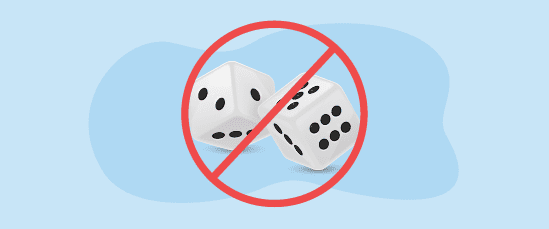If you are looking to become a professional trader (I.E. make a living out of trading), spread betting is one style of trading where you can achieve this goal. Professional traders use spread betting to take advantage of price movements of derivative financial and sports instruments to make a profit and therefore generate income.
With the ability to spread bet through financial spread betting or sports spread betting, professional spread betting has many benefits (and risks), which we lay out in our step-by-step guide below.
How Do You Spread Bet Like A Professional?
To spread bet like a professional you’ll need an understanding of the markets, strong discipline, and a proven strategy. Below are some key considerations to keep in mind while pursuing a career in spread betting.
1. Time to Spread Bet
As a professional you will likely have more time to monitor the markets throughout the day, allowing you to analyse the markets for more potential trades. However, you should consider if monitoring the markets all day will suit your trading strategy.
As an example, I manage my time by analysing the markets in the morning, noting down the key levels of support/resistance levels and setting alerts when the markets break these levels throughout the day. This gives me a call to action an analysis of the current market situation and then implement my strategy and helps me avoid the need to monitor the markets all day.

2. Focus on Rate of Return
By going professional you should have a ballpark figure of your rate of return (RoR), which is the loss or gain of an investment over a certain period.
You have to understand that for you to grow your account, you first have to earn enough profit to cover your cost of living and bills, then anything above this level is growing your account.
So if you need to earn £1,500 for living costs, and you make £3,000 profit – that leaves you with £1,500 profit before taxes. If you earn £500 spread betting then you’d have to withdraw £1,000 from your account to cover your living expenses.
3. Know Your Targets
Before you take the plunge into full-time spread betting, you need a strategy that is proven to be profitable.
Having a good strategy involves setting a performance or profit target. There are two different ways to set a performance target. You can either target a specific profit amount you want to make or a price level you want the market to hit.
For example, if you set a profit target of 7580 for the UK100, you can place a limit order at 7580 to ensure you earn a profit once the market hits that level. Alternatively, you might want to target a £500 profit, in which case you’ll work out what level the UK100 needs to reach to earn that profit target.
If you set performance targets to bet on the markets, it will give you much more control over your spread bets, meaning you won’t lose more than you can afford.

4. Make Ruthless Decisions
To successfully spread bet like a professional, you must be prepared to make ruthless trading decisions. To be ruthless, you must have discipline, which is the foundation of what makes professional spread bettors excel. The key areas are:
Betting on what you know
With access to thousands of markets bringing tens of thousands of opportunities each day, it’s easy for you to drift and look at other markets for new opportunities. This isn’t a bad idea, but you should be cautious as not all markets are equal. If you trade outside your scope, (E.g. you normally bet on the SP500 but decide to bet on gold), you’ll soon find out that gold moves very differently to the SP500 and it could impact your day’s profits. So it’s best to stick with what you know.
Betting what you can risk
Keeping your risk management tight is how you can preserve your capital when you are having a tough time in the markets. You should never increase your stake sizes to try and win your losses back faster. This is a surefire way to lose more money if you are on a losing streak.
Cutting losses
I know how hard it is to take a loss (it’s not fun) but you should know that the market is never wrong. So it’s easier to take a small loss before the financial market lets you suffer a significant loss because you didn’t want to.
5. Don’t Gamble
While spread betting can be associated with gambling products like sports betting where you speculate on the outcome of a sports team or event coming true (or not), it is important not to treat it like gambling. Remember, spread betting is a derivative of an underlying asset, like shares, forex, indices, bonds and commodities.
The underlying market you spread bet on is the exact same market that pension funds, investment banks, and hedge funds trade – these are assets of value. The main difference between investing and spread betting is that spread betting is tax-free in the UK and Ireland.
Spread betting and investing (plus CFDs) are both regulated activities by the Financial Conduct Authority (FCA), while gambling is governed by the UK Gambling Commission.
While both activities involve you placing a bet on an uncertain outcome, spread betting has a deeper level of analysis that eliminates an outcome relating to chance.

6. Research, Research
Researching the markets is important if you want to go full-time and monitor the markets, it should include fundamental and technical research. I’d suggest you start your day off by highlighting any key high-impact economic data that will be released.
Even if you don’t bet on the news, it is important to understand that markets can rally before significant data announcements and then plunge once the data is released. So you want to avoid being liquidity for the bigger players.
In addition, it helps you avoid potential trade ideas that are generated around these times as you could enter your bet during these times and then get stopped out immediately because of the news. Not ideal considering it could be avoided

7. Protect Your Capital
As mentioned above, keeping your risk management tight is how you can preserve your capital when your trades are not going your way. If you continue to increase your stake sizes to try and win your losses back faster, you could find yourself losing more money than you originally intended.
8. Set Aside Emotions
If you want to go pro then you have to understand that there will be a psychological urge for you to place bets so you force a profit for the day. If you are not betting, you are not earning, this places a psychological burden once you go professional as your overheads and cost of living will become front of your mind to ensure your bets cover the bills.
While a retail trader can relieve this kind of pressure, as the income you earn will cover the bills – allowing you to focus on high-quality trades.
What Taxes Apply For Professional Spread Bettors?
If you want to have spread betting as your sole income then unfortunately spread betting profits will no longer be tax-exempt. This isn’t all bad news though, as it means you can now write off your betting losses against your profits to reduce your tax liability.
Tax rules for professional spread betting are different than for casual spread betting. If spread betting is your sole (or possibly main) income then the HMRC requires you to declare these earnings as income tax.
For more information, you can check out our UK spread betting tax page.
What Leverage Is Available For Professional Spread Betting?
Most professionals in the UK want the maximum leverage available which can be as high as 500:1 or 0.2% margin.
If you are new to trading or don’t qualify for an Elective Professional Account, you can spread bet as a retail trader account, which has a maximum leverage of 30:1 (3.33%). We explain the role of leverage in detail in our spread betting margin section.
| Instrument Traded | Retail | Professional Leverage |
|---|---|---|
| Forex Major | 30:1 | 500:1 |
| Forex Minor | 20:1 | 500:1 |
| Major Indices | 20:1 | 400:1 |
| Minor Indices | 10:1 | 100:1 |
| Currency Indices | 10:1 | 200:1 |
| Gold & Silver | 20:1 | 500:1 |
| Metals | 10:1 | 100:1 |
| Share CFDs | 5:1 | 20:1 |
| Energies | 10:1 | 100:1 |
| Cyptocurrency | N/A | 10:1 |
| Soft Commodities | 10:1 | 50:1 |
How Do I Qualify For A Professional Spread Betting Account?
To qualify for an Elective Professional Account you need to meet 2 of 3 conditions as defined by the Financial Conduct Authority (FCA):
- Have sufficient trading activity in the last 12 month
Sufficient means an average frequency of 10 trades per quarter of the previous 12 months. You may need to provide account statements in PDF as proof you meet this ‘sufficient’ trading condition.
- Have relevant experience in the financial services sector
You work (or previously worked) in the financial services field in a relevant professional capacity. Your role should involve knowledge of OTC derivatives such as Forex or CFDs. Your employer or previous employer may need to provide a letter confirming you position.
- Manage a Financial portfolio of over €500,000 (this can include cash savings and financial instruments)
You will need to show you manage a financial portfolio of significant size. The portfolio can consist of shares, financial derivatives, debt instruments and cash deposits. If cannot include property.
If you are new to trading or don’t qualify you are eligible for a retail trader account, which has a maximum leverage of 30:1 (3.33%). We explain the role of leverage in detail in our spread betting margin section.
Can You Make a Living As A Professional Spread Bettor?
Yes, many professional spread bettors make a living out of spread betting. It’s important to acknowledge, however, that becoming a professional spread bettor takes years of experience. To spread bet successfully relies on many key factors such as having a robust trading strategy, betting on the right spread markets, and developing a solid risk management strategy.
What Spread Betting Broker Is The Best For Professional Traders?
If you want a specific betting market or shares with low spreads, then Pepperstone is an excellent spread betting company with its extensive range of products. There are many other great spread betting brokers for professionals, which we have highlighted in our best spread betting brokers review.
Which Trading Platform Is The Best For Professionals To Spread Bet?
There are many trading platforms you can use for professional spread betting, which depend on the individual. If we were to choose one spread betting platform, it would be MT4. MetaTrader 4 spread betting has many benefits, including its customisable, user-friendly interface, the ability to use EAs (Expert Advisors) and the advanced, risk trading tools that come with the platform.
What Strategies Are Best For Professional Traders?
As a professional trader, there are many trading strategies you can implement while spread betting. Some of the best spread betting strategies that we’ve observed include the Reversal, Trend Market and Breakout Spread Betting Strategies. Which one you use, all depends on what type of professional trader you are.
FAQ
Is Spread Betting Legal In The UK?
Yes, spread betting is legal in the UK. All UK-based spread betting firms operating from within the UK need to be fully regulated by the Financial Conduct Authority (FCA). For more information, you can check out our spread betting regulation page.
Is Spread Betting High Risk?
Like any financial market, spread betting involves high risk. Some spread betting risks include market volatility, over-trading and using high leverage. As such, to be a successful, professional spread bettor means your risk management has to be airtight.
There are a range of tools to improve your risk management such as setting stop loss and taking profit orders.
Even better, some spread betting brokers like City Index, OANDA, IG and CMC Markets have guaranteed stop-loss orders (GLSO) if you use their proprietary trading platform. A GSLO will exit your position at the price you set, allowing you to avoid slippage during volatile markets.
Do Professional Betters Use a Stop-Loss Order?
Whether you’re a professional bettor or a beginner, if you are on a losing streak, your losses can quickly spiral out of control so having a spread betting stop-loss order in place can help minimise your potential losses.
Which Markets Do Professionals Prefer To Trade?
What markets professionals prefer to trade all comes down to individual preference. If we were to choose one, however, the forex markets are very popular amongst all traders.
Outside of forex, spread betting on gold is a popular choice given its status as a safe haven asset.
Regardless of what market you choose, as a professional, it is important to be excellent at one market, rather than okay at several.
Is Professional Trading The Same As Day Trading?
In short, no. Day trading is one type of trading strategy that a professional trader can employ, but it is not necessarily the same thing as professional trading. However, when it comes to spread bets, you can use day trading as a strategy.


